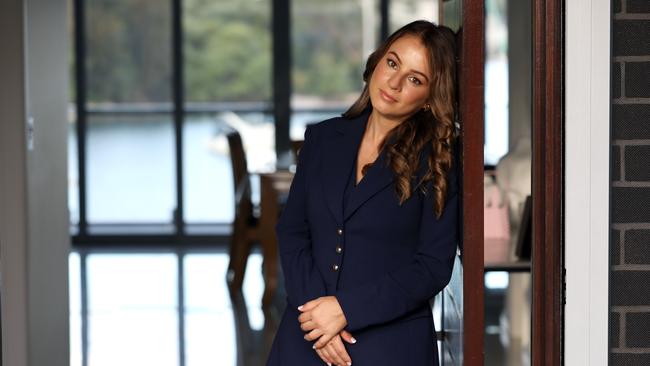‘Unlimited hours’: Young lawyers feel overworked and underpaid
The next generation of legal minds is at risk of leaving the profession because they feel mistreated, overworked and underpaid, a new report says.

Early-career lawyers have slammed their conditions and pay as research shows many in the next generation of legal minds are at risk of leaving the profession entirely, citing poor physical health, burnout, depression and anxiety.
A study of more than 2000 lawyers has identified “a significant level of psychological distress” in the industry, with those fresh to law most severely affected.
“It’s often very under-resourced, high pressure, long hours and very, very different to anything I envisioned while I was at uni,” said solicitor Leila Bunguric.
Ms Bunguric recently launched the Young Lawyers Club, a networking group for those who feel overworked in law. The club is a response to what she says are “experiences of burnout and almost questioning why I entered the profession in the first place … There is this certain stigma, and lawyers actually take pride in it, that you just have to work really, really, really hard, that you’ve got to work very long hours and that it’s normalised cultural practice to be responding to emails at 10pm.”


A ‘significant number’ of respondents to the research shared their intention to either leave law or move to a law-related profession, the report said.
For those who had been practising law for less than five years, poor working conditions and the payment relative to workload were most often blamed for wanting to leave the profession.
“There’s this expectation that you’re on a fixed salary, but you’re working unlimited hours,” Ms Bunguric said.
The report from the Australian National University and the University of Melbourne partially attributes blame for poor wellbeing to the business model of law being built on “excessive workloads” and “unreasonable working hours”.
Solicitor and workplace welfare advocate Stefanie Costi said early-career lawyers were particularly vulnerable to mistreatment, as larger firms knew they could “treat people like garbage [and] there’s a conga line of people that are waiting to replace them”.
“People have this misconception throughout university that being a lawyer is going to earn you lots of money from the word ‘go’,” she said. “And I wish someone would educate people … going through uni that isn’t always the case.”

The high-stress work environment of law contributes heavily to burnout and employee turnover, with young lawyers reporting poor work-life balance and impacts on their physical health.
“It’s far less glamorous than what people think,” Ms Costi said
“If people think that it’s going to be like Elle Woods from Legally Blonde, it is not like that. If people think that they’re going to be the next Harvey Specter [from Suits], maybe in five years, not now.”
Ms Costi said as a solicitor, she has dealt with “a lot of sexism, a lot of racism and a lot of elitism”.
“There’s punishing hours, you can be working 60 to 100-hour weeks because that’s glorified as paying your dues even if it destroys your health, relationships and sense of self,” she said.
“I think sometimes if you raise concerns that people are bullying you or harassing you or whatever, you’re labelled as difficult, emotional or not a team player.”
In 2023, Ms Costi came forward with her own experiences of workplace bullying and harassment as a law student at the hands of a senior partner.
Her advocacy took her to NSW parliament and the National Press Club, where she spoke about the impact of mistreatment in the workplace and the changes needed in the industry.
“When I joined the legal profession, obviously I was bullied and that didn’t sit really well with me,” she said. “You don’t go through uni to get bullied in the first job and absolutely have the life sucked out of you.”




To join the conversation, please log in. Don't have an account? Register
Join the conversation, you are commenting as Logout